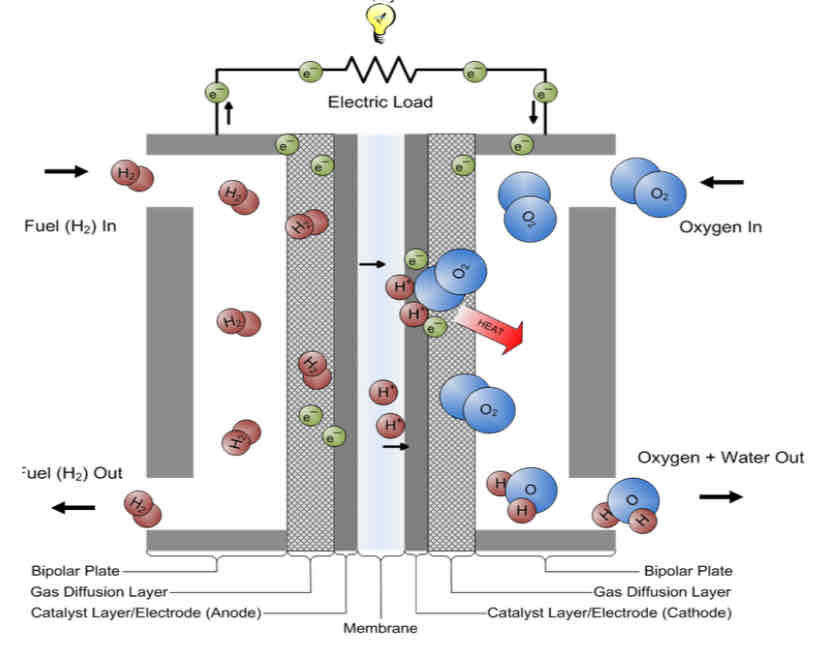Resources + Energy
1/26
There's no tags or description
Looks like no tags are added yet.
Name | Mastery | Learn | Test | Matching | Spaced | Call with Kai |
|---|
No analytics yet
Send a link to your students to track their progress
27 Terms
Natural resources:
Materials in nature that are of use to people.
Renewable resources:
A resource that is replaced at a rate close to its use.
Non-Renewable Resource:
A resource that is NOT replaced in nature once it is used.
Mineral Reserves:
How much minerals are underground.
Fuel cell:
A battery which uses hydrogen to produce electricity.
Solar cell:
Converts the suns energy into electricity.
Synthetic fuels:
Liquid fuel made from coal and natural gas instead of oil.
Biodiesel:
Diesel fuel made from any plant oil.
Geothermal:
Heat from the earth.
Nuclear Energy:
Energy from the fission of atoms. Produces radioactive waste. 100 operating in the US.
Fission:
Splitting of atoms.
Fusion:
Atoms joining.
Hydropower:
The generation of electricity by dams.
Wind Turbine:
Windmills used to generate electricity.
Fossil Fuels:
Materials that formed from living things.
Coal:
Compacted plant remains. The US has vast deposits. The main generation of electricity. Carbon dioxide and sulfur dioxide.
Oil:
Formed from microscopic sea life. Burning produces CO2.
Natural Gas:
Related to oil formation, the cleanest burning of the fossil fuels.
Biomass Energy:
Energy from organic material. Methane gas/burning wood.
Chernobyol:
Overheating, steam explosion, fire, and meltdown, necessitating the evacuation of 300,000 people from Chernobyl and dispersing radioactive material across Europe. Many towns remain abandoned.
Fukushima:
A tsunami flooded and damaged the 5 active reactors and drowning two workers. Loss of backup electrical power led to overheating, meltdowns, and radiation continues to leak into Pacific Ocean. 300,000 people had to leave homes.
Nuclear Energy: (photo)
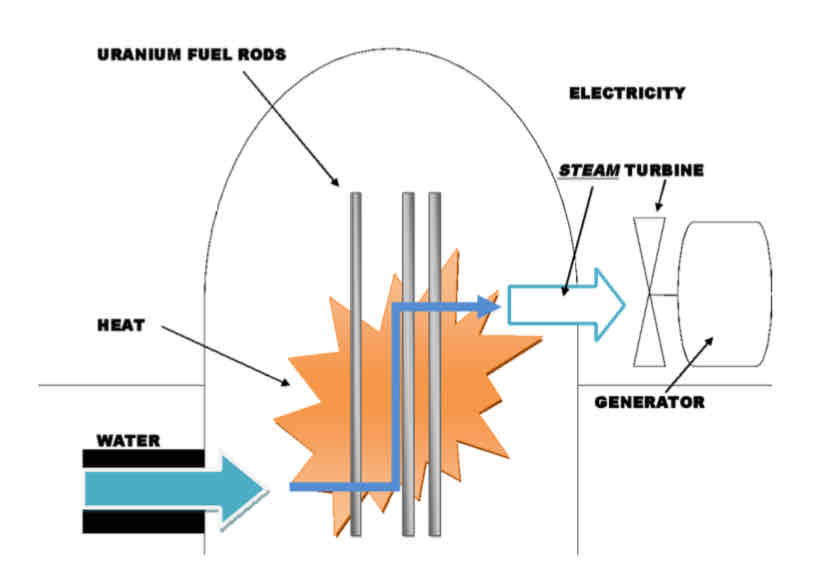
Electricity from coal: (photo)
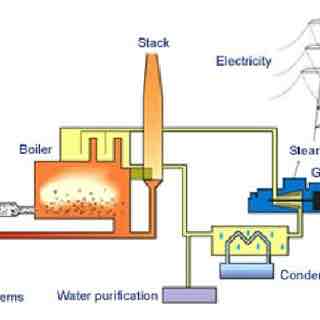
Geothermal Energy: (photo)
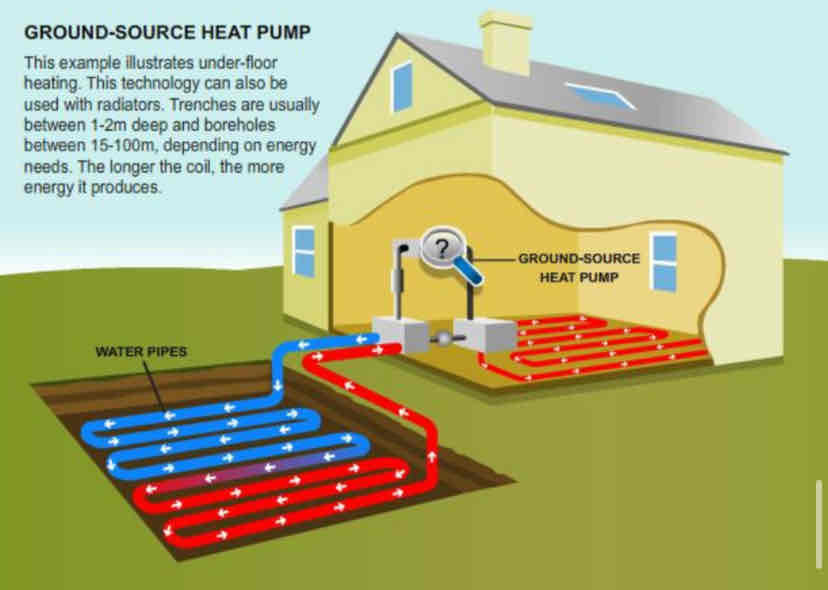
Wind Power: (photo)
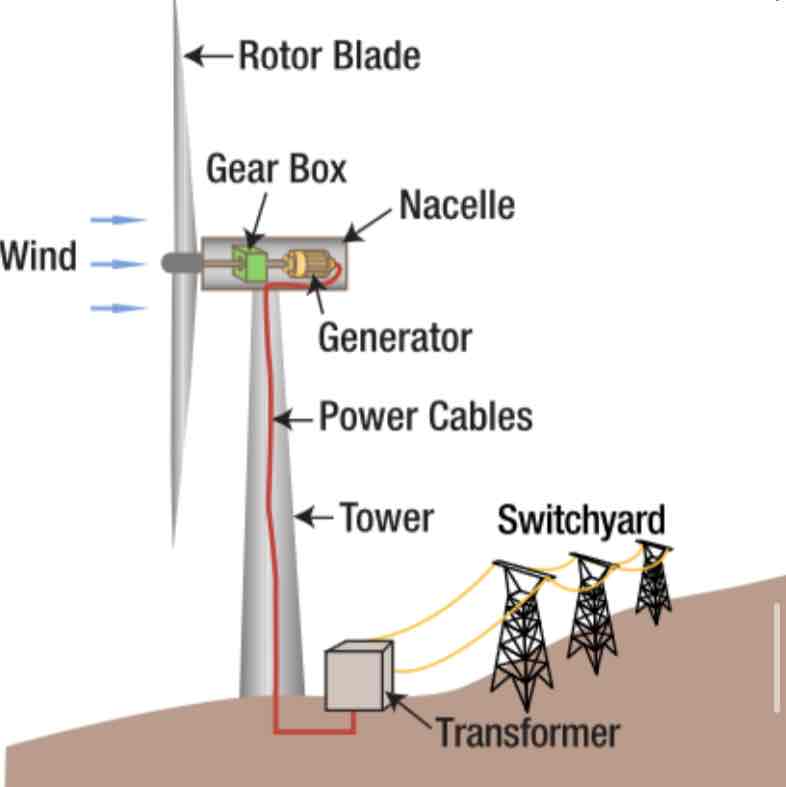
Hydro-electric Power: (photo)
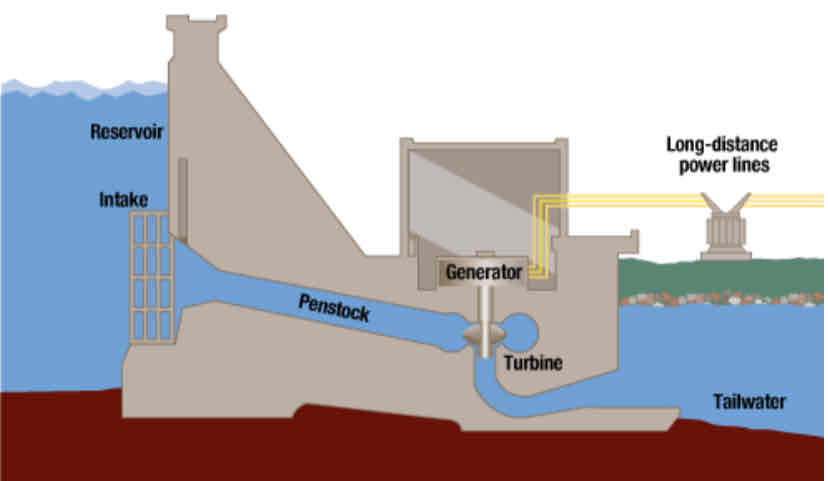
Fuel Cell: (photo)
